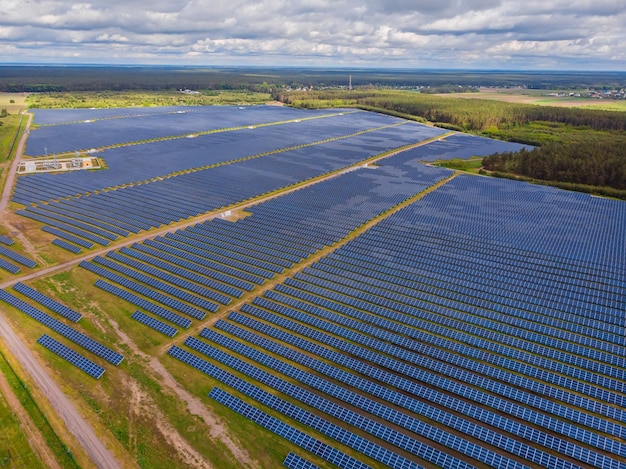Using renewable energy systems in agricultural operations offers several benefits, both for the farmers and the environment. Here are some key advantages:
- Cost savings: Renewable energy systems, such as solar panels or wind turbines, can significantly reduce energy costs for agricultural operations. Once installed, these systems harness natural resources like sunlight or wind, which are freely available, reducing or even eliminating the need for expensive fossil fuels.
- Energy independence: By generating their own renewable energy, farmers can become less reliant on external energy providers. This independence provides stability and resilience, especially in remote rural areas where grid access may be limited or unreliable.
- Reduced operating expenses: Traditional farming practices often require significant energy inputs, such as irrigation, heating, and cooling systems. By using renewable energy, farmers can reduce their operating expenses and allocate their resources more efficiently.
- Environmental sustainability: Renewable energy sources produce electricity with minimal or no greenhouse gas emissions, helping to mitigate climate change. By transitioning to renewable energy, agricultural operations can reduce their carbon footprint, decrease air pollution, and contribute to a cleaner and healthier environment.
- Enhanced reputation: Employing sustainable practices can enhance the reputation of agricultural operations. Consumers are increasingly conscious of environmental issues and prefer products produced using renewable energy sources. By adopting renewable energy systems, farmers can appeal to environmentally conscious consumers and potentially gain a competitive edge in the market.
- Diversification of income: In some cases, renewable energy systems on agricultural lands can generate surplus energy. Farmers can sell this excess electricity back to the grid, providing an additional source of income and diversifying their revenue streams.
- Government incentives and grants: Many governments offer financial incentives, tax credits, grants, and other support programs to promote the adoption of renewable energy. By taking advantage of these incentives, farmers can reduce the initial investment costs associated with implementing renewable energy systems.
- Long-term investment: Renewable energy systems have a long lifespan, often ranging from 20 to 30 years or more, with relatively low maintenance requirements. By investing in renewable energy, farmers can secure a long-term and reliable energy source, protecting themselves from potential future energy price fluctuations.
Integrating renewable energy systems into agricultural operations provides economic, environmental, and social benefits. It allows farmers to become more sustainable, reduce costs, and contribute to a greener future.
Join 'Farmers Mag' WhatsApp Channel
Get the latest Farming news and tips delivered straight to your WhatsApp
CLICK HERE TO JOIN






